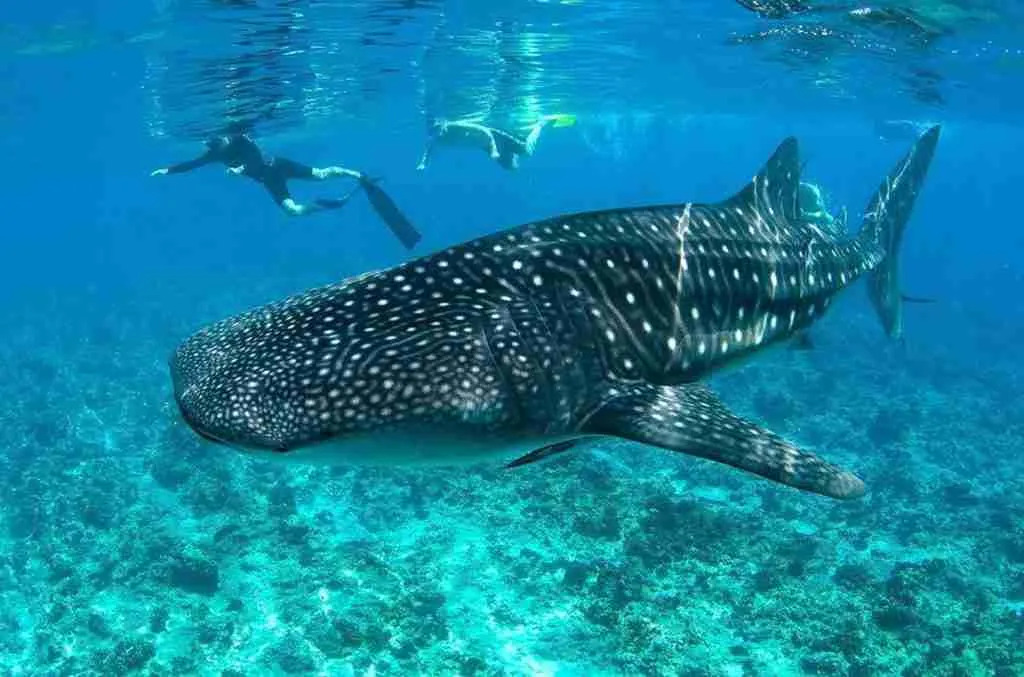Red Sea Whale Shark Season: Your Complete Guide to Diving with Giants
The Red Sea whale shark season offers one of the most extraordinary marine encounters on the planet. Every year, these gentle giants migrate through the crystal-clear waters of the Red Sea, creating unforgettable opportunities for divers and snorkelers to witness nature's largest fish up close.
When is Whale Shark Season in the Red Sea?
Peak whale shark season in the Red Sea runs from May to September, with the highest concentration of sightings occurring between June and August. During these months, water temperatures rise and plankton blooms attract these magnificent filter feeders to the region's nutrient-rich waters.
Monthly Breakdown:
- May-June: Season begins, increasing sightings
- July-August: Peak season with maximum whale shark activity
- September: Season winds down but encounters still possible
- October-April: Occasional sightings but significantly reduced
Best Locations for Red Sea Whale Shark Encounters
Daedalus Reef (Abu Kizan)
Located in the Egyptian Red Sea, Daedalus Reef is renowned as one of the world's premier whale shark destinations. This remote oceanic reef attracts whale sharks consistently during peak season, offering pristine visibility and dramatic underwater topography.
Elphinstone Reef
Another Egyptian hotspot, Elphinstone Reef combines whale shark encounters with diverse marine life including oceanic whitetip sharks, making it a bucket-list destination for experienced divers.
Marsa Alam Region
The coastal areas around Marsa Alam, particularly sites like Sha'ab Samadai and Sha'ab Claudio, offer excellent whale shark sightings along with easier access for both divers and snorkelers.
Sudanese Red Sea
The pristine waters of Sudan's Red Sea, including Sha'ab Rumi and Sanganeb Atoll, provide exceptional whale shark encounters in less crowded conditions.
What Makes Red Sea Whale Shark Diving Special?
The Red Sea offers unique advantages for whale shark enthusiasts:
Crystal-Clear Visibility: The Red Sea boasts some of the world's clearest waters, with visibility often exceeding 30 meters (100 feet), allowing for spectacular whale shark photography and videography.
Warm Water Temperatures: Summer water temperatures range from 26-30°C (79-86°F), making extended snorkeling and diving sessions comfortable without heavy wetsuits.
Vibrant Coral Ecosystems: Beyond whale sharks, the Red Sea features stunning coral reefs teeming with diverse marine life, creating a complete underwater paradise.
Multiple Encounter Opportunities: During peak season, it's not uncommon to see multiple whale sharks in a single dive or snorkeling session.
How to Prepare for Your Whale Shark Adventure
Choosing Your Trip
Liveaboard Diving Safaris offer the best access to remote sites like Daedalus and Elphinstone, with 7-10 day itineraries providing multiple whale shark opportunities.
Day Trips from Shore are available from Marsa Alam and other coastal destinations, ideal for shorter visits or those who prefer not to stay aboard boats.
Required Skills
- For Divers: Advanced Open Water certification recommended, as many prime sites feature deep walls and currents
- For Snorkelers: Basic swimming ability and comfort in open water conditions
Equipment Recommendations
- Wide-angle camera or GoPro for capturing these massive creatures
- Reef-safe sunscreen to protect both your skin and the marine environment
- Quality mask and snorkel with good visibility range
- Freediving fins for efficient movement while snorkeling
Responsible Whale Shark Tourism
Protecting these endangered animals requires responsible interaction:
- Maintain Distance: Stay at least 3 meters (10 feet) away from whale sharks
- No Touching: Never attempt to touch, ride, or obstruct a whale shark's path
- Avoid Flash Photography: Use natural light to prevent startling the animals
- Follow Your Guide: Listen to experienced dive masters who understand whale shark behavior
- Choose Ethical Operators: Select tour companies committed to sustainable whale shark tourism
Planning Your Red Sea Whale Shark Trip
Best Time to Book
Reserve your liveaboard or dive package 3-6 months in advance, especially for peak July-August dates when boats fill quickly.
Beyond Whale Sharks: Red Sea Marine Life
While whale sharks are the main attraction, the Red Sea delivers incredible biodiversity:
- Dolphins and dugongs
- Manta rays and eagle rays
- Hammerhead sharks (at certain sites)
- Vibrant coral gardens with over 1,000 fish species
- Historic wrecks including the SS Thistlegorm
Conservation Status and Importance
Whale sharks are listed as endangered on the IUCN Red List, making every encounter precious and highlighting the importance of sustainable tourism. The Red Sea represents a critical habitat for these gentle giants, and responsible tourism helps fund conservation efforts while raising awareness about marine protection.
Tips for Maximizing Your Whale Shark Experience
- Be Patient: Whale sharks appear on their own schedule—stay calm and ready
- Move Slowly: Sudden movements can scare these curious but cautious creatures
- Stay Surface-Level: When snorkeling, whale sharks often feed near the surface
- Bring Backup Batteries: Extended encounters drain camera batteries quickly
- Enjoy the Moment: Don't get so focused on photography that you forget to simply experience the magic
Conclusion: An Unforgettable Red Sea Adventure
Swimming alongside a whale shark in the Red Sea's azure waters ranks among life's most awe-inspiring experiences. These spotted giants, reaching lengths of up to 12 meters (40 feet), glide gracefully through the water, filtering plankton with mouths wide enough to engulf a person—yet gentle enough to coexist peacefully with awestruck snorkelers and divers.
Whether you're an experienced diver seeking the remote reefs of Daedalus or a snorkeler hoping for your first whale shark encounter near Marsa Alam, the Red Sea whale shark season offers something truly special. Plan your visit between May and September, choose responsible operators, and prepare for memories that will last a lifetime.
The giants of the Red Sea are waiting.


